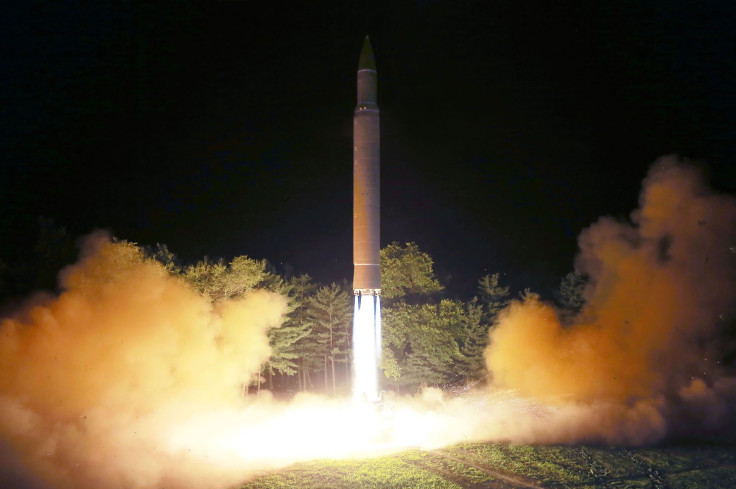Defected North Korean Solider Had Anthrax Antibodies: Report
One of the four North Korean soldiers who defected to South Korea this year was found to have antibodies to anthrax, a bacteria that can be used as a biological weapon, according to South Korean television station Channel A Tuesday.
“Anthrax antibodies have been found in the North Korean soldier who defected this year,” said a South Korean intelligence official, who spoke to the station anonymously.
Having anthrax antibodies indicates that the soldier was either immunized against the bacteria or possibly exposed to it. The official did not indicate which of the four soldiers had the antibodies in his system.
Last week the Japanese newspaper Asahi reported that North Korea had started to test loading anthrax onto intercontinental ballistic missiles (ICBM). Through a series of tests this year, North Korea demonstrated the ability to theoretically strike anywhere in the U.S. with an ICBM. An ICBM shoots into space and its warhead is deployed before it comes crashing down through Earth’s atmosphere toward its target. The report said that North Korea was testing to ensure the anthrax weapon could survive the immense heat caused by the warheads re-entry.
South Korea believes North Korea has a chemical weapon stockpile of 2,500 to 5,000 tons and the ability to produce biological warfare agents such as anthrax and smallpox, according to Bloomberg.
The White House pointed to the dangers North Korea poses outside of its burgeoning nuclear weapons programs in the National Security Strategy released last week.
“North Korea — a country that starves its own people — has spent hundreds of millions of dollars on nuclear, chemical, and biological weapons that could threaten our homeland,” read the report. “[North Korea is] pursuing chemical and biological weapons which could also be delivered by missile.”
The U.S. has taken two different tacks in dealing with North Korea this year. President Donald Trump has downplayed trying to negotiate with the country, while Secretary of State Rex Tillerson has advocated for discussion.
The belief that North Korea had the ability to manufacture biological weapons has gone back several years, but some officials have cast doubt on whether the regime has actively pursued biological weapons. One official who spoke to the Washington Post under the condition of anonymity earlier this month questioned Pyongyang’s motives.
“That the North Koreans have [biological] agents is known, by various means,” the official said. “The lingering question is, why have they acquired the materials and developed the science, but not yet produced weapons?”
North Korea denied the Asahi report through its state media arm, the Korean Central News Agency (KCNA).
“As a state party to the Biological Weapons Convention (BWC), [North Korea] maintains its consistent stand to oppose development, manufacture, stockpiling and possession of biological weapons,” the KCNA reported, referencing the 1972 United Nations ban on certain biological weapons. “The more the US clings to the anti-[North Korea] stifling move...the more hardened the determination of our entire military personnel and people to take revenge will be.”
North Korean soldiers who have defected to the South have given the world a picture of some of the inner workings of the secretive nation.
One North Korean soldier who was shot while crossing the border in November showed a number of health issues, according to his doctors in South Korea. While repairing the soldier's intestinal tract, torn apart by bullets, surgeons discovered a number of parasites, typical of impoverished and developing countries. He also had a Hepatitis B and latent or inactive tuberculosis.

12/26; 4:40 pm. This story has been updated.
© Copyright IBTimes 2024. All rights reserved.





















